Guided bike tours are one of my favourite ways to be introduced to a city. Melbourne’s top-rated bike-tour provider, Blue Tongue Bikes (formerly Freddy’s Bike Tours), did not disappoint with their Classic Melbourne Bike Tour, covering 16 kilometres / 10 miles over 4.5 hours. It was a perfect activity to insert in my short weekend visit to Melbourne.
It was an excellent tour with plenty of stops for informative commentary, insights into Australian history, exposure to fine colonial architecture, and great storytelling.
Table of Contents
Meeting point
The group met at the bike shop in Batman Park beside the Yarra River just off Flinders Street in Melbourne’s Central Business District.
The confirmation email included a handy map of the meeting place and surrounding area.
Meeting 15 minutes before the starting time of the tour allowed participants to stow luggage or secure belongings in on-site lockers. We were fitted with seven-speed city cruiser bikes and invited to take them for a short spin in the park to get acquainted with how everything worked.
Ingredients for a relaxed and safe ride
It is in the best interests of bike tour companies to garner excellent reviews and preserve an exemplary record of accident-free riding. My research indicated Blue Tongue Bikes ticked both boxes.
A related factor pertains to group size. Each group is capped at 12 riders, enabling the tour guide to manage and supervise the group successfully.
In my experience, city bike tours are structured to attract families and inexperienced riders. Routes are chosen to promote safe and pleasurable riding, with plenty of stops to make it exciting and enjoyable. Ninety per cent of the Classic Melbourne Bike Tour route is off-road on bike lanes, riverside paths, and park trails. It was an easy ride over mostly flat terrain, requiring a basic fitness level.
Melbourne bike tour: key stops
The tour was an excellent way to become oriented and discover some of the key sights.
1. Yarra River Trail
The first stop was on the Yarra River Trail beside the Yarra River. Our guide shared a brief early history of Melbourne, beginning with the river’s pivotal role in the lives of the first inhabitants. To the Wurundjeri people, the river was ‘birrarung,’ meaning ‘river of mists and shadows.’ The name ‘Yarra’ comes from the misheard ‘Yarro Yarro’ (‘it flows’) when surveyor John Wedge asked local indigenous people what they called the cascading waters on the lower section of the river.
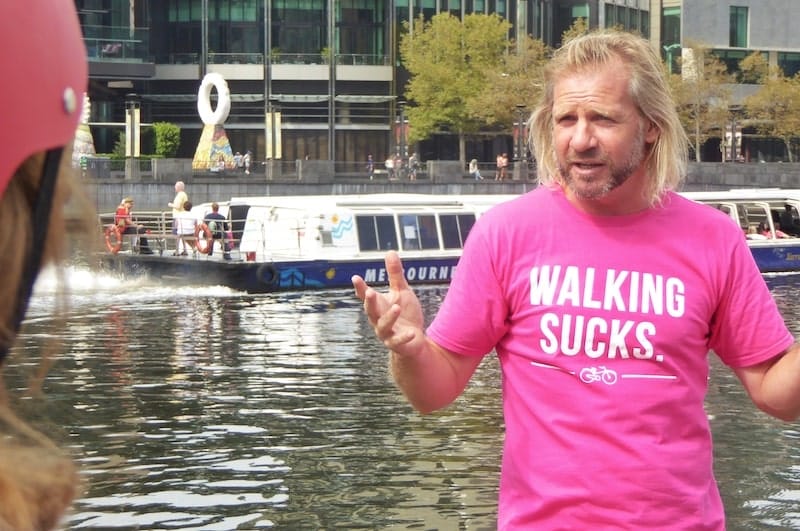
2. Shrine of Remembrance
In a shady area beside the Shrine of Remembrance, we learned of the significance and history of the Shrine. Built as a place to grieve and remember Victorians killed in the First World War, it is now a place of remembrance for Australians who have served in all wars and peacekeeping operations since the Australian Federation in 1901. It also honours those who laboured at home to support national defence during wartime.
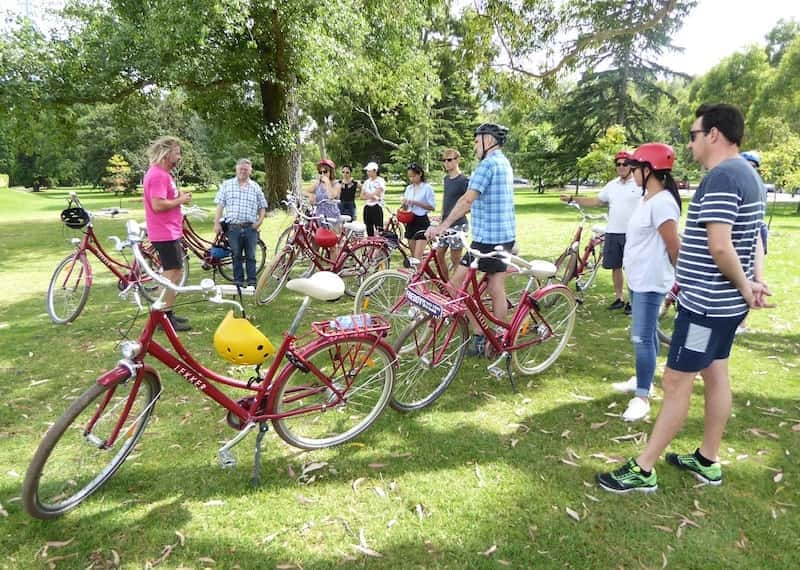
The Sanctuary is the Shrine’s most revered space. The Stone of Remembrance is in the centre of the Sanctuary. It is symbolic of a gravestone for Australian servicemen and women buried overseas, many in unmarked graves. When the building was constructed, long before computers made mathematical calculations a breeze, an aperture in the roof ensures a beam of light shines on the stone at 11 am, on the 11th day of the 11th month, to mark the signing of the armistice to end World War I.
The forecourt to the north of the Shrine is the World War II Memorial, containing the eternal flame lit by Queen Elizabeth II in 1954.
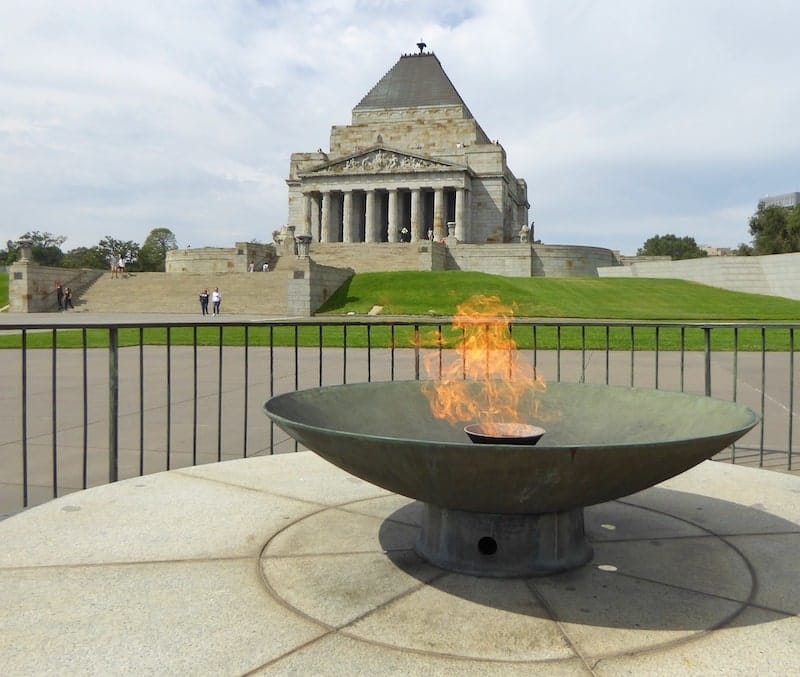
3. Melbourne Sports Precinct
Melbourne prides itself on being the sporting capital of Australia (if not the universe). There are so many facilities clustered in one large sports precinct, including the Melbourne Cricket Ground (home to cricket tests and ‘Aussie Rules’ football), Australian Open Tennis arenas (named after legendary players Rod Laver and Margaret Court), and AAMI Park, home to soccer and rugby matches.
A statue of sporting legend Dennis Lillee, regarded as the greatest Australian pace bowler of any era, occupies a prominent place in the precinct.
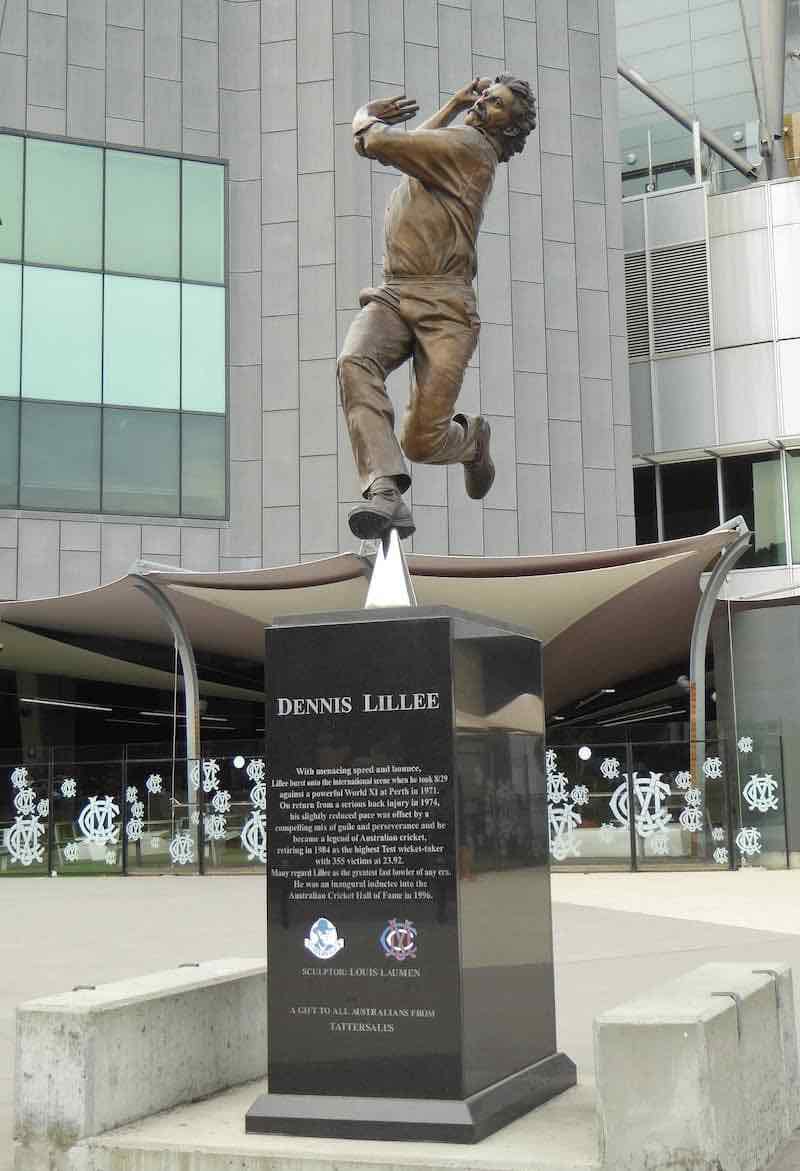
4. Lunch in Fitzroy
For lunch, we ventured into the inner-city suburb of Fitzroy and our reserved table in the courtyard of a popular local café, Grub Fitzroy. Unfortunately, the restaurant didn’t survive the pandemic and is permanently closed. Undoubtedly, Blue Tongue Bikes has found a worthy successor. Lunch is not included in the tour cost.
The braised calamari and octopus dish sounded interesting, along with the tomato beetroot juice chaser to the half pint of beer on tap. It was a risk worth taking.
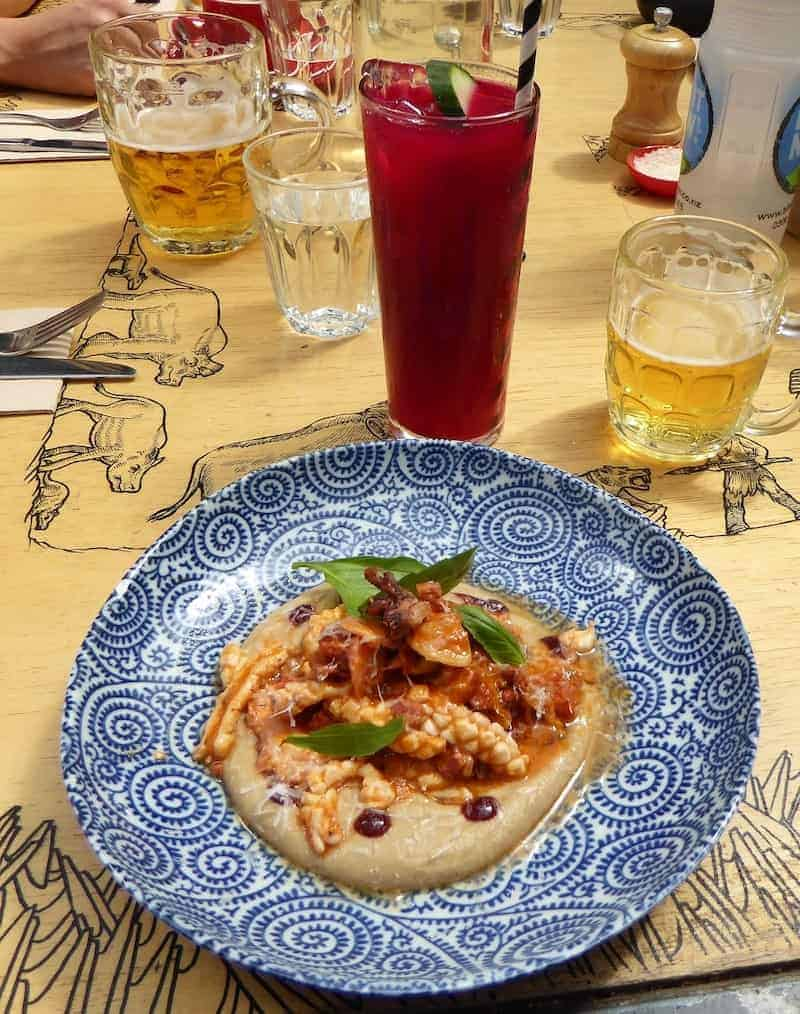
It’s common in Australia for complimentary sunscreen to be widely available for patrons to lather up before heading out into the sun. Most parts of the country have year-round high levels of ultraviolet radiation, with the result that Australia has the highest skin cancer rates in the world.
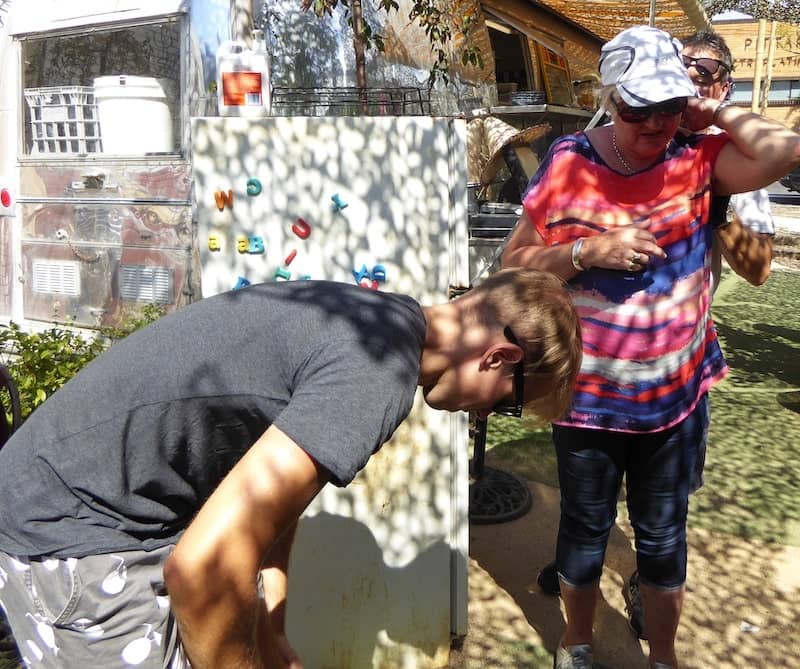
Terrace houses and street art enhance Fitzroy’s character. The brief glimpses observed on the bike tour whetted my appetite for more, so the following day, I went on a self-guided stroll in search of both. Some gems I uncovered during several pleasant hours are recorded in the post, In search of terrace houses and street art in Melbourne’s Fitzroy.
5. Old Melbourne Gaol
At the notorious Old Melbourne Gaol, there were 133 hangings during the 90 years of its existence. Within an adjoining courtyard, we heard stories of the Eureka Rebellion in 1854 during the Victorian gold rush and tales from the life of bushranger Ned Kelly who was hanged at the jail in 1880.
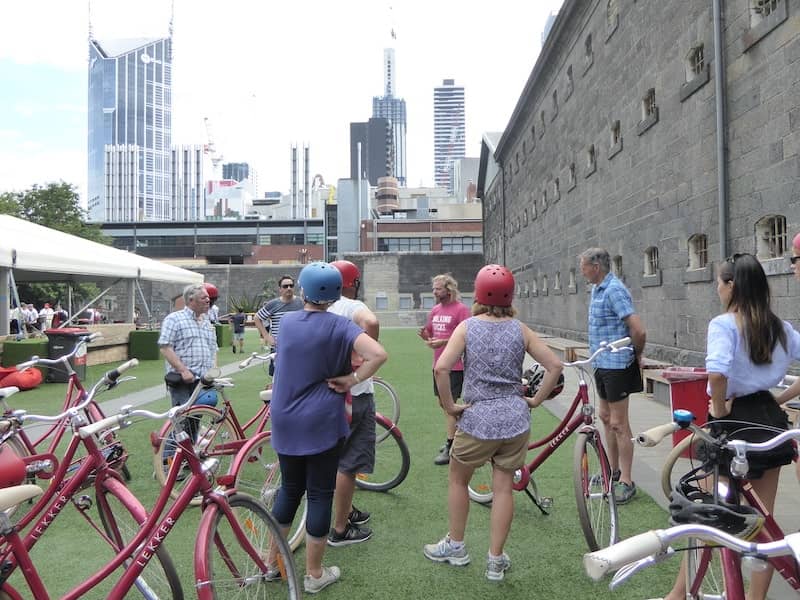
6. Cooks’ Cottage
Imagine a cottage located initially in Yorkshire, England and shipped to Australia to honour the legacy of the British explorer, navigator, and navy commander, Captain James Cook. Cook is best known for his contributions to the geography of the Pacific Ocean. His expeditions charted more than 5,000 miles of coastline in the Pacific, proved the insularity of New Zealand, and added the eastern coast of Australia to the map, claiming New Zealand and eastern Australia for Britain in the process (presumably an acceptable practice in many quarters in 1770).
Built by the parents of Captain James Cook, the fact that Cook never lived in Cooks’ Cottage is irrelevant; it is a tangible connection to Australia’s colonial past. What intrigued me the most was that the house was shipped to the other side of the world as individually numbered bricks packed in barrels in 1934.
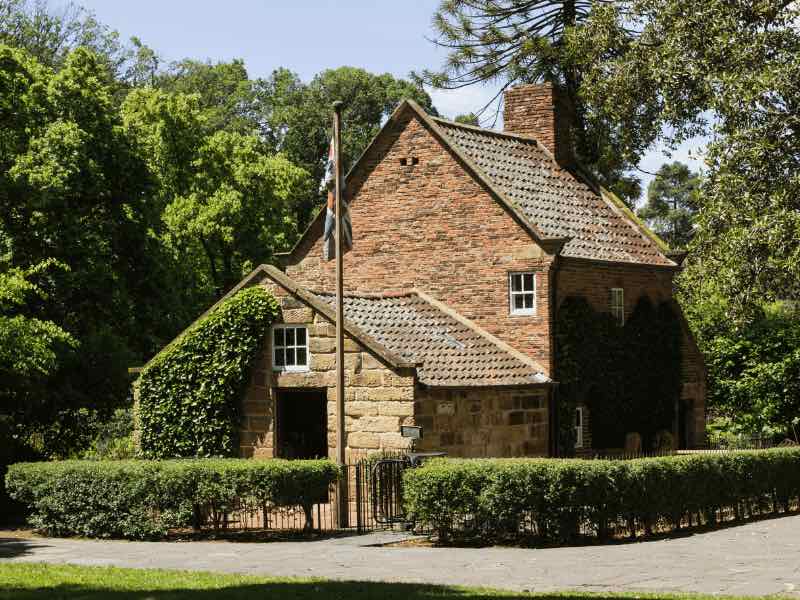
7. Parliament House
Victoria’s Parliament House is one of Melbourne’s most distinguished public buildings and best-known landmarks. The heritage building’s impressive facade, sweeping steps, elegant lamps, and grand colonnade make it an appealing stop on our tour.
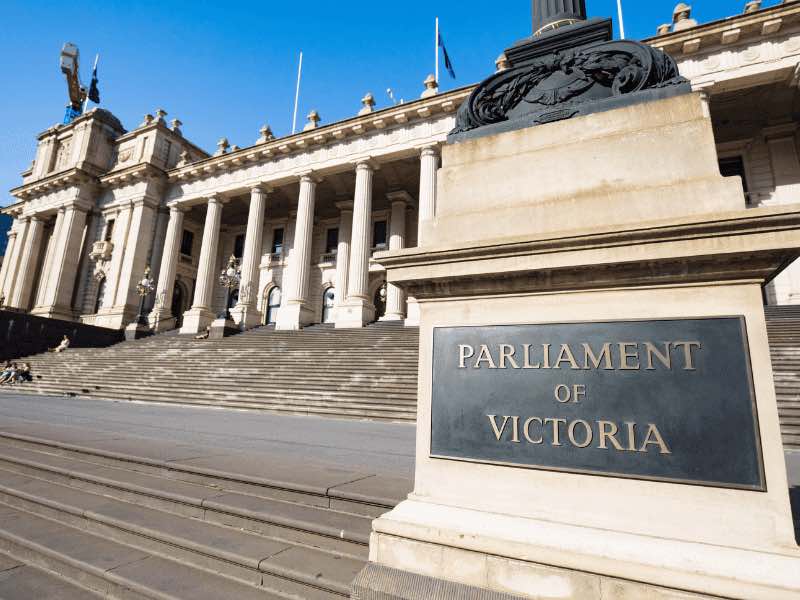
8. Royal Exhibition Building
The Royal Exhibition Building and its surrounding Carlton Gardens were designed for the great international exhibitions of 1880 and 1888 in Melbourne. The building is the oldest of its kind in the world still being used for its original purpose. In 2004, it was inscribed on UNESCO’s World Heritage List to reflect the contributions of the international exhibition movement of the nineteenth century to industrialization and international trade.
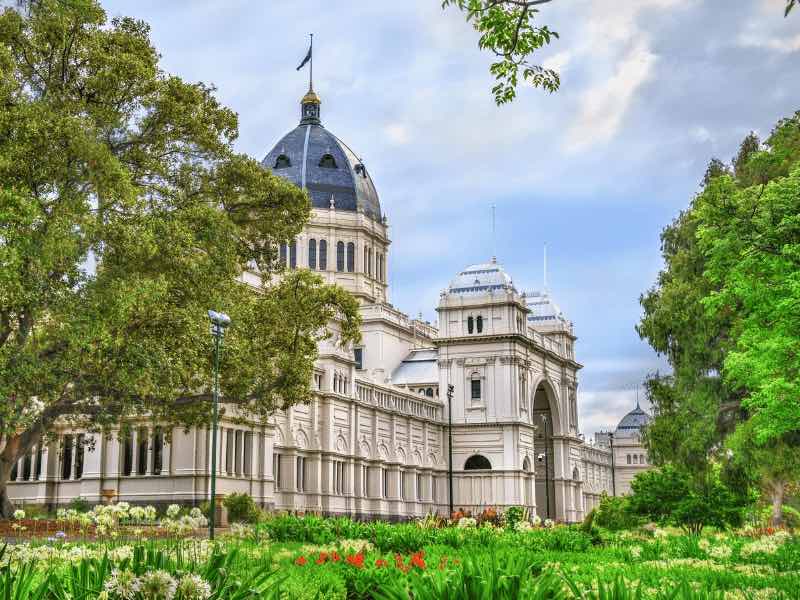
9. Hosier Lane
A tour of Melbourne would only be complete with a stop by one of the many lanes boasting street art. Opened in 1998 as a street art gallery, Hosier Lane is popular with tourists and as a backdrop for fashion and wedding photography (and of course, bike tours).
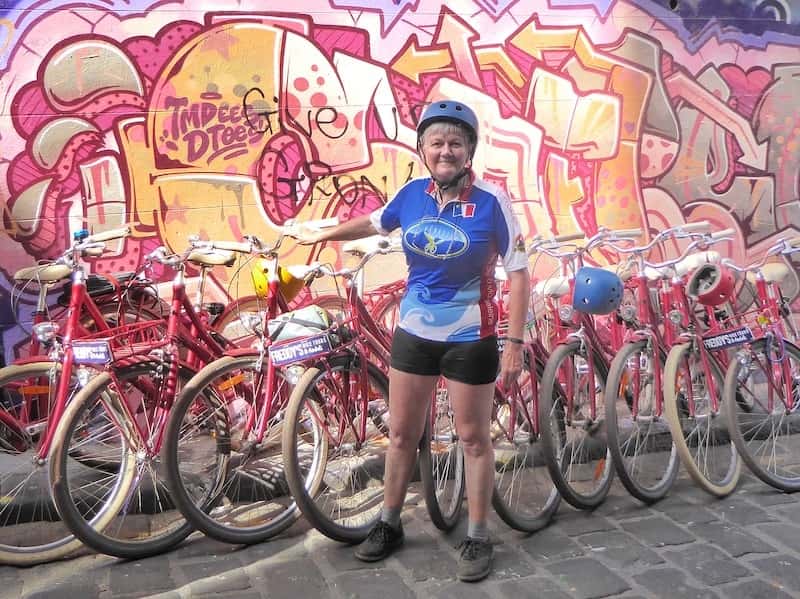
The Verdict
Blue Tongue Bikes’ “WE GOT CRED” claim is well deserved, along with over 500 5-star reviews at Trip Advisor. Their city bike tour was one of the highlights of my visit to Melbourne.
If you found this post helpful, please share it by selecting one or more social media buttons. If you’d care to share your thoughts, please do so in the comments. Thank you.
Care to pin it for later?
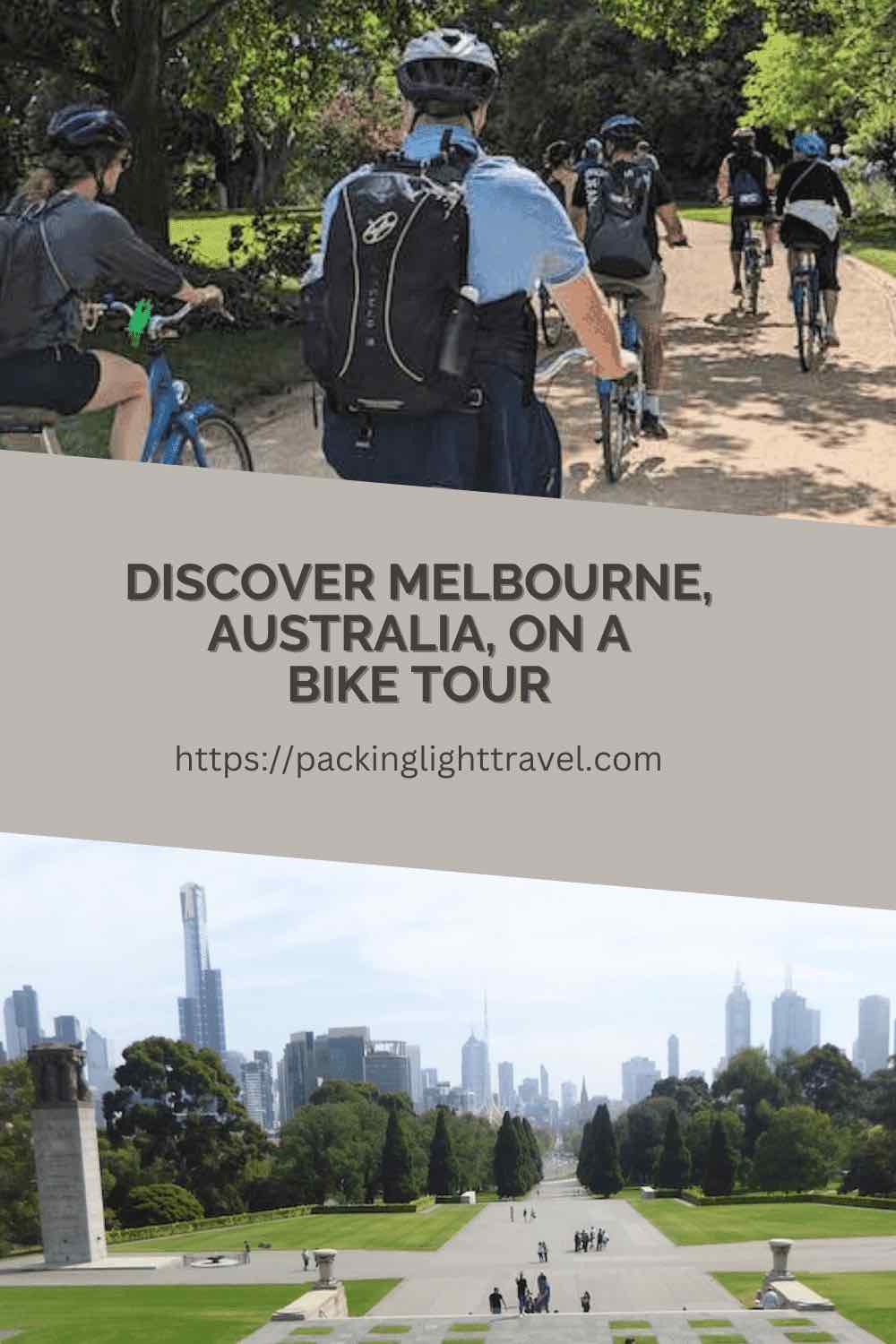
This post is neither sponsored nor solicited, and I’ve received no rewards from the service provider. I paid the full cost of the bike tour.
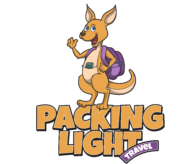
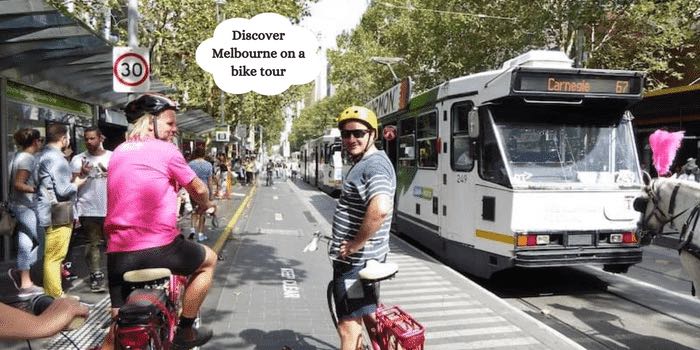

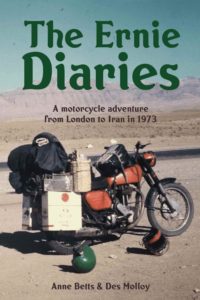
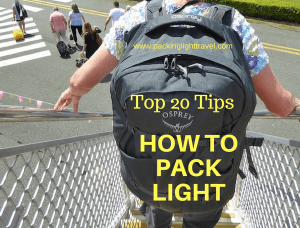

What a fantastic post ! I love your insights on the Melbourne bike tour; it sounds like such a fun way to explore the city. Maybe you could include a few tips on must-see spots along the route? Thanks for sharing your experience! Keep up the great work!
Your experience with the Classic Melbourne Bike Tour sounds absolutely delightful! It’s fantastic how a guided bike tour can provide such an immersive introduction to a city, especially with all the historical insights and beautiful sights along the way. From the scenic Yarra River Trail to the vibrant street art in Hosier Lane, it seems like you got a well-rounded taste of Melbourne’s culture.
I love how you highlighted the importance of a safe, enjoyable ride with knowledgeable guides like those at Blue Tongue Bikes. Did any particular stop or story resonate with you the most during the tour?